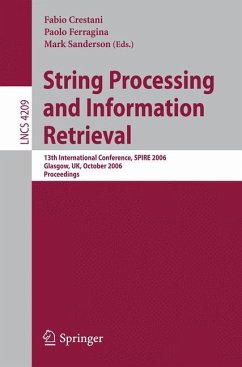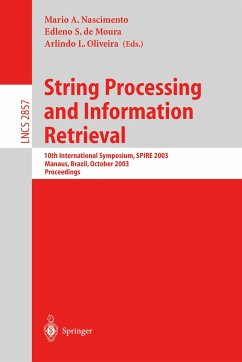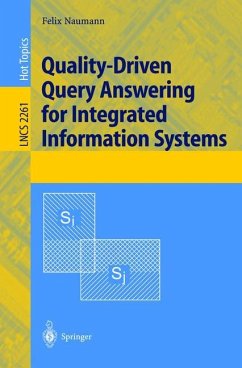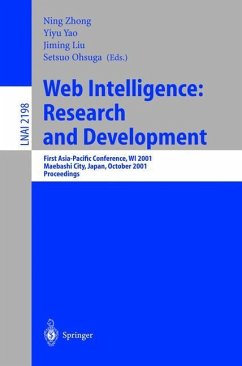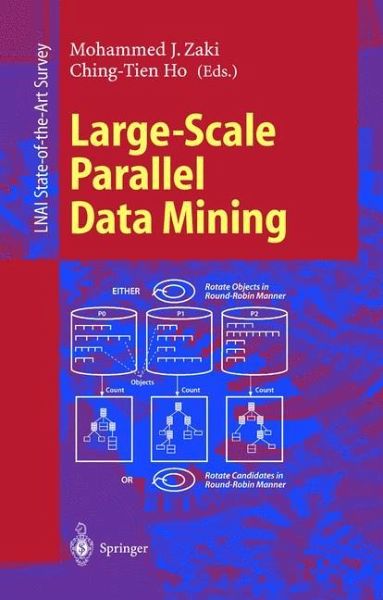
Large-Scale Parallel Data Mining

PAYBACK Punkte
19 °P sammeln!
With the unprecedented growth-rate at which data is being collected and stored electronically today in almost all fields of human endeavor, the efficient extraction of useful information from the data available is becoming an increasing scientific challenge and a massive economic need. This book presents thoroughly reviewed and revised full versions of papers presented at a workshop on the topic held during KDD'99 in San Diego, California, USA in August 1999 complemented by several invited chapters and a detailed introductory survey in order to provide complete coverage of the relevant issues. The contributions presented cover all major tasks in data mining including parallel and distributed mining frameworks, associations, sequences, clustering, and classification. All in all, the volume presents the state of the art in the young and dynamic field of parallel and distributed data mining methods. It will be a valuable source of reference for researchers and professionals.
Withthe unprecedented rate at which data is being collected today in almostall elds of human endeavor, there is an emerging economic and scientic need to extract useful information from it. For example, many companies already have data-warehouses inthe terabyte range (e.g., FedEx, Walmart).The WorldWide Web has an estimated 800 millionweb-pages. Similarly,scienti c data is rea- ing gigantic proportions (e.g., NASA space missions, Human Genome Project). High-performance, scalable, parallel, and distributed computing is crucial for ensuring system scalabilityand interactivityas datasets continue to grow in size and complexity. Toaddress thisneedweorganizedtheworkshoponLarge-ScaleParallelKDD Systems, which was held in conjunction with the 5th ACM SIGKDD Inter- tional Conference on Knowledge Discovery and Data Mining, on August 15th, 1999, San Diego, California. The goal of this workshop was to bring researchers and practitioners together in a setting where they could discuss the design, - plementation,anddeploymentoflarge-scaleparallelknowledgediscovery (PKD) systems, which can manipulate data taken from very large enterprise or sci- tic databases, regardless of whether the data is located centrally or is globally distributed. Relevant topics identie d for the workshop included: { How to develop a rapid-response, scalable, and parallel knowledge discovery system that supports global organizations with terabytes of data.





